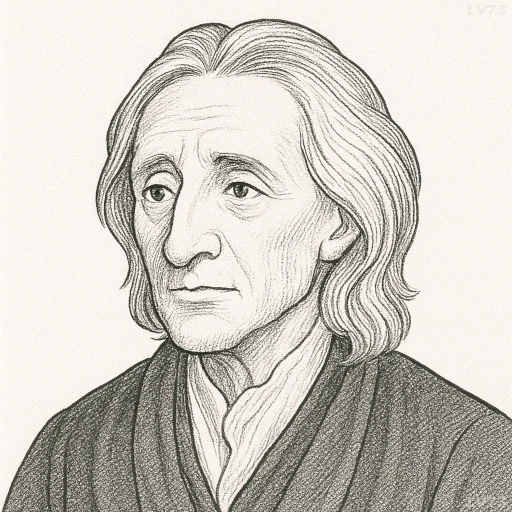“Reading furnishes the mind only with materials of knowledge; it is thinking that makes what we read ours.”

- August 29, 1632 – October 28, 1704
- Born in England (UK)
- Philosopher and political thinker
table of contents
Quote
“Reading furnishes the mind only with materials of knowledge; it is thinking that makes what we read ours.”
Explanation
In this quote, John Locke emphasizes the idea that reading alone is not sufficient for gaining true understanding. While reading provides the raw materials—facts, ideas, and information—it is the process of thinking, reflecting, and engaging with these materials that turns them into knowledge that becomes a part of us. Locke is asserting that intellectual growth requires more than just passive reception of information; it demands active engagement and critical thinking. This reflects his broader view that knowledge is not innate but is acquired through experience, observation, and thoughtful reflection.
Locke’s philosophy, deeply rooted in empiricism, placed great importance on the role of experience and reason in shaping human knowledge. During the 17th century, as the Enlightenment period unfolded, thinkers like Locke began to challenge traditional authorities and encourage independent thinking. Locke believed that education should not merely fill the mind with facts but should train individuals to engage with those facts thoughtfully and to apply reason in drawing conclusions. In this context, his view on reading and thinking reinforces the idea that learning is an active process that requires both absorption and internalization.
In the modern world, Locke’s insight remains vital, particularly in education and personal development. The value of reading is widely recognized, but it is the ability to critically engage with what we read—through analysis, synthesis, and reflection—that leads to deeper understanding and insight. This principle is evident in modern critical thinking curricula and methods that encourage students to move beyond simple memorization and toward thoughtful interpretation and application of knowledge. Locke’s quote underscores that true learning occurs when we actively make the information we consume a part of our own intellectual framework, integrating it with our experiences and prior knowledge.
Would you like to share your impressions or related stories about this quote in the comments section?



